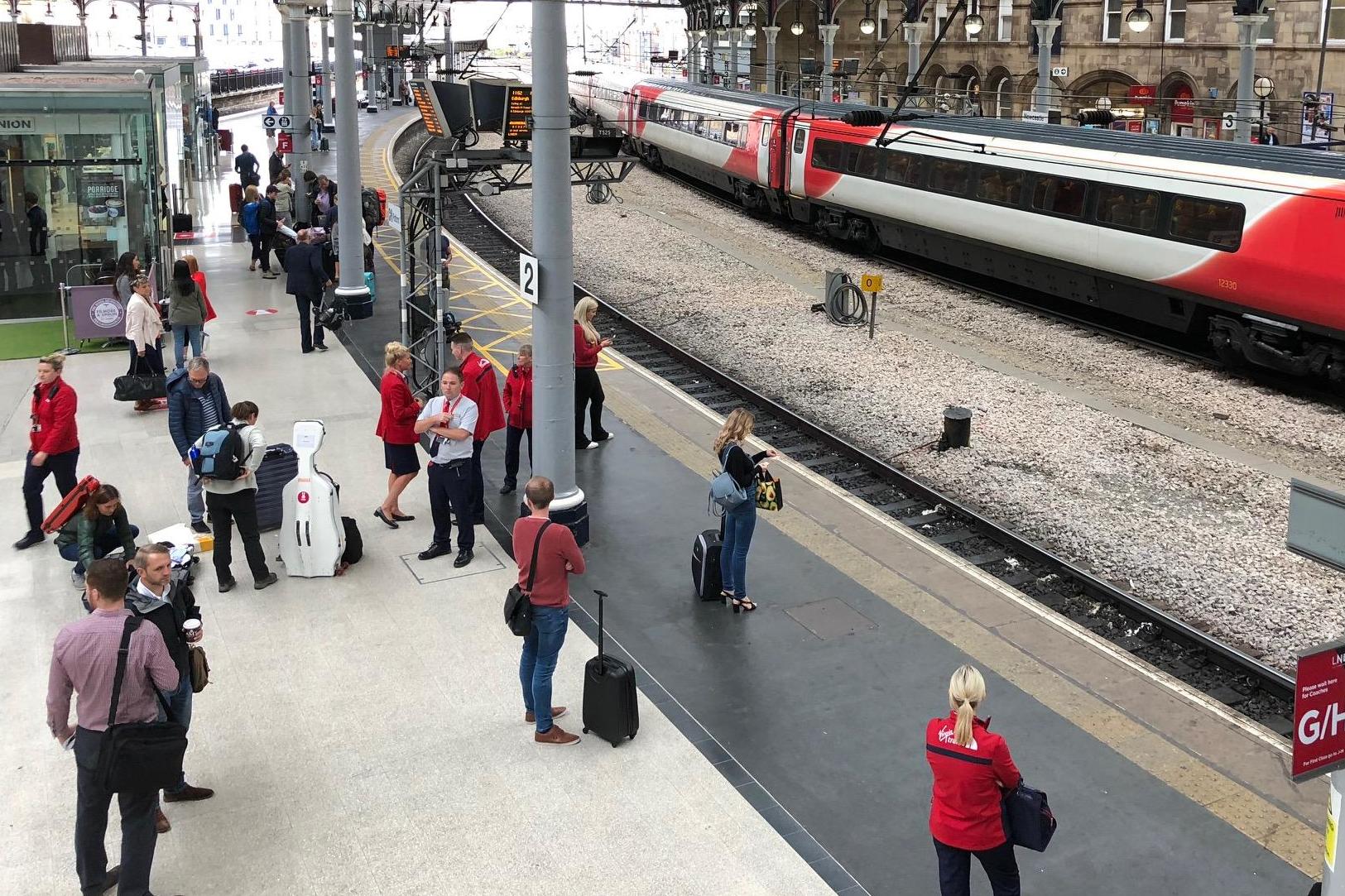Train fares: why a Starbucks stop can save you £28
‘People tend to look misty-eyed at a perfect world that never existed,' says Andy Wakeford of the Rail Delivery Group

Your support helps us to tell the story
From reproductive rights to climate change to Big Tech, The Independent is on the ground when the story is developing. Whether it's investigating the financials of Elon Musk's pro-Trump PAC or producing our latest documentary, 'The A Word', which shines a light on the American women fighting for reproductive rights, we know how important it is to parse out the facts from the messaging.
At such a critical moment in US history, we need reporters on the ground. Your donation allows us to keep sending journalists to speak to both sides of the story.
The Independent is trusted by Americans across the entire political spectrum. And unlike many other quality news outlets, we choose not to lock Americans out of our reporting and analysis with paywalls. We believe quality journalism should be available to everyone, paid for by those who can afford it.
Your support makes all the difference.The branch of Starbucks on platform four of Doncaster railway station looks and feels a long way from the original in Pike Place Market, Seattle. Yet it is an ideal place to pass four minutes while you save £28.
The UK is often criticised for high rail fares. But if you don’t like them, you can usually find others that are more agreeable. I’m not talking about waking at dawn 12 weeks ahead to bag a cheap advance ticket; these are for ‘walk-up’ fares with no planning required.
Anyone needing a short-notice trip from London to Newcastle that gets them to Tyneside before lunchtime, for example on the 7.30am departure from King’s Cross, faces a one way fare of £153 on LNER.
Yet if you leave London four minutes earlier on Hull Trains to Doncaster, and order a coffee there while the train you first thought of catches up, the price drops to £125. By the time the LNER train to Newcastle eases to a halt, the barista should have perfected your decaf skinny latte.
That a reasonably priced train ticket on the East Coast Main Line should involve a platform pause in South Yorkshire is symptomatic of a wider malaise.
On the West Coast Main Line, passengers on the TransPennine from Edinburgh to Lancaster pay £7 more than those continuing 20 miles deeper into Lancashire to Preston.
The fault of rail privatisation? Not according to Andy Wakeford, head of fares for the Rail Delivery Group (RDG).
“People tend to look misty-eyed at a perfect world that never existed,” he says.
“I started work for British Rail 30 years ago. Shortly after I joined I went to see an up-and-coming angry, leftist comedian named Ben Elton, who took apart the whole British Rail fares system and what a joke it was, and how nobody understood it.
“At the point of privatisation It became embedded, and bits have then been added on to it. You have the original complexity with added complexity.”
The RDG, which represents train operators and Network Rail, has been running a consultation on rail fares all summer. So far 13,000 people and organisations have responded, and you have 10 days to make your feelings known at britainrunsonrail.co.uk/fares.
Ditching decades of accumulated anomalies was also the the view of the now defunct Strategic Rail Authority. After a consultation in 2003, it talked of “replacing the existing regime by 2006 with one more suited to passenger needs”.
During the intervening 15 years, politicians have shied away from tackling what everyone agrees is a rotten system. Instead, they have merely bickered about the percentage by which fares should rise each January.
Every day many passengers pay more than they should, while travellers like me with too much time on our hands find intricate but legal ways to halve the fare from London to Bristol – with the Didcot Dodge, for example.
Yet the split ticket websites and apps that make it easy to get around the fares system could be the trigger for the root-and-branch reform that the rail industry says is essential. If many more passengers exploit the baked-in anomalies to save cash, says Andy Wakeford, “the finances are not going to continue to work in the way they have in the past”.
“The worst thing in the world is to leave it until there is a crisis, because good decisions are not made in crisis situations.”
Asking travellers what they want from the rail fares system is a welcome start. But even in a perfect world without media-sensitive politicians, rationalising train tickets implies some people win and others lose.
Human nature being what it is, the losers will be 100 times more vocal than the winners. So I am not betting on rail fares becoming reacquainted with the real world any time soon.
Meanwhile, back on platform four at Doncaster, if £125 still looks impolitely expensive for a trip from Thames to Tyne, you can save another £30 or so by buying a short-notice advance ticket on CrossCountry and waiting an extra few minutes – giving you the time, and money, for a croissant with your coffee.
Join our commenting forum
Join thought-provoking conversations, follow other Independent readers and see their replies
Comments